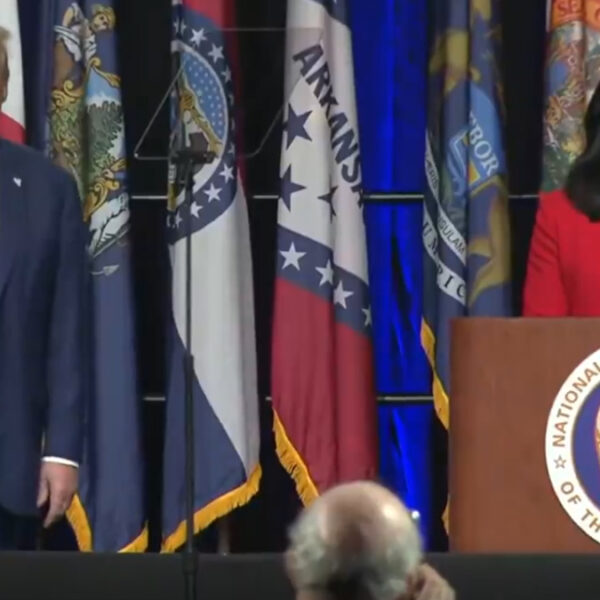Our hardworking East Coast fishermen are up in arms, their livelihoods hanging by a thread as the offshore wind industry, championed by reckless Democrats, wreaks havoc on our ocean resources. This past Sunday, a fleet of fishermen took to the waves in an act of defiance against these destructive developments. The catalyst? A recent turbine failure that spewed toxic debris into the Atlantic Ocean. Jerry Leeman, CEO of the New England Fishermen’s Stewardship Association and captain of the fishing vessel Teresa Marie, voiced his outrage, “We’ve been steamrolled. America as a whole has been steamrolled.” Barret, a Massachusetts fisherman with over four decades under his belt, echoed this sentiment, “We are small businessmen… We’ve been steamrolled.”
The Vineyard Wind turbine disaster in Massachusetts on July 13th serves as a damning indictment of the offshore wind industry’s detrimental impact on marine life and our fishermen’s livelihoods. The shattered blade spewed styrofoam, fiberglass, and other debris into our precious oceans. Some even washed up on Nantucket’s untouched beaches. This incident has ignited deep concerns among our fishermen about the safety and sustainability of these Democrat-backed offshore wind projects.
Leeman didn’t hold back in expressing his frustration at the government’s lack of transparency and accountability. He declared, “Now the government is squandering billions of taxpayer dollars on an experimental floating offshore wind facility in Maine while they openly admit they have limited data on its potential effects on sustainability.”
The federal government recently issued a lease to Maine for developing the U.S.’ first floating offshore wind farm – a reckless move spurred by a 2023 bill signed by Democratic Gov. Janet Mills.
This bill has the audacity to aim for half of Maine’s electricity to come from offshore wind by 2040. But our fishermen aren’t taking it lying down. The Vineyard Wind protest united fishermen from all corners of the East Coast, including Maine, New Jersey, Rhode Island, Connecticut, and Massachusetts. They are united in their concerns about the impact of these wind monstrosities on their livelihoods and safety. Nantucket lobsterman Dan Pronk stressed the impact that debris from the broken turbine would have on his business, stating, “I fish 800 lobster traps right where you’re putting these tombstones, which is also the end of my business… If you breathe those fumes… you’ll get higher than a rat.”
But it’s not just the immediate damage we should be worried about. There are grave concerns about the long-term effects of offshore wind on fish reproduction and food sources. Studies have shown that the noise from these turbines can interfere with fish communication during spawning.
Moreover, reduced wind speeds from these wind farms can disrupt nutrient distribution in the ocean, leading to a decline in primary production and potentially decimating fish populations. Our fishermen are rightly terrified about the sustainability and health of marine life in the face of this rampant offshore wind development.
What adds insult to injury is the foreign origin of key players in this industry – Danish energy company Ørsted, Norwegian petroleum and renewables company Equinor, and Vineyard Wind co-owner Avangrid which is majority owned by Spanish utility company Iberdrola.
https://twitter.com/ACKCurrent/status/1813717874877579380?ref_src=twsrc%5Etfw
This raises questions about the legality of these projects. The 1976 Magnuson-Stevens Fishery Conservation and Management Act grants the U.S. exclusive rights over marine resources up to 200 nautical miles from our coast. Leeman expressed his disbelief at the lack of local input and control over these projects, stating, “None of us ever recall having a vote of foreign national companies to come in and have direct impact on our natural resources… The Magnuson-Stevens Act was designed to kick foreign invaders out of our waters to keep our marine resources sustainable.”
Despite the Biden administration throwing billions of dollars in subsidies at these projects and setting aggressive state goals for offshore wind development, project cancellations and delays are common. The recent termination of two of New York’s offshore wind contracts due to unwillingness to boost ratepayer-funded subsidies is just one example.
As Americans wake up to the damaging impacts and escalating costs associated with offshore wind, there’s been a backlash against these developments. The fishermen’s protests against Vineyard Wind serve as a stark reminder that we need to prioritize sustainable and responsible energy solutions that don’t jeopardize our vital marine resources or the livelihoods of our fishermen.
Source: SilverCircular




Leave a Comment